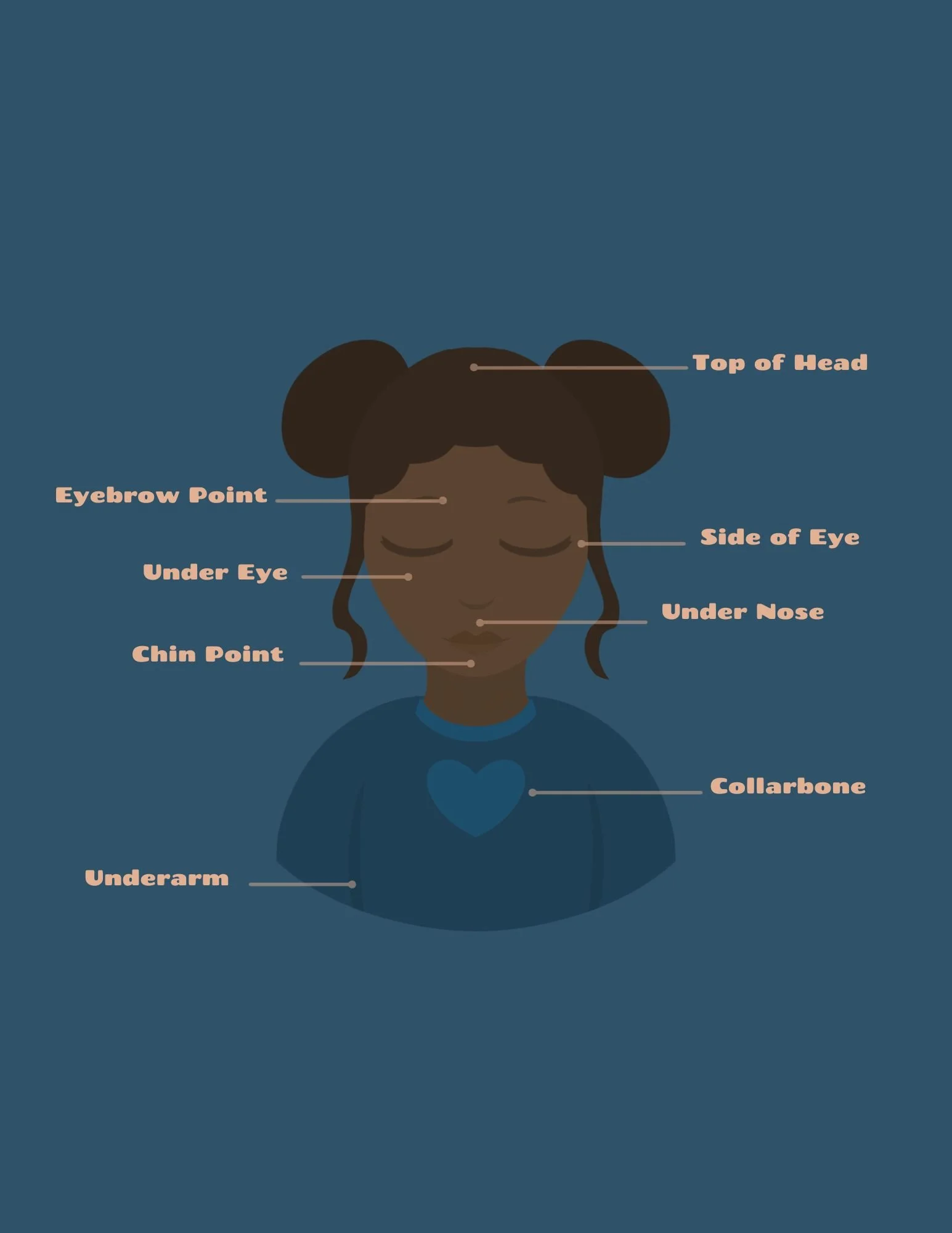FAQS ABOUT EFT
Tap on it!
-
Emotional Freedom Techniques (EFT), often referred to as "tapping," is a powerful and holistic therapeutic approach that combines elements of traditional Chinese medicine, psychology, and neuroscience. EFT is designed to alleviate emotional distress, reduce stress, and address a wide range of physical and emotional issues.
This technique involves gently tapping on specific acupuncture points on the body, primarily on the face and upper body, while focusing on a particular issue, emotion, or problem. The tapping process is accompanied by verbalizing affirmations or statements that acknowledge and address the problem being targeted. By stimulating these energy meridian points and addressing the associated negative emotions, EFT aims to restore balance to the body's energy system and promote emotional well-being.
-
By tapping on specific acupressure points while focusing on an emotional or physical issue, EFT aims to release negative emotions and energy blockages. This process helps calm the body's stress response, promotes relaxation, and can lead to a sense of emotional relief and physical comfort. EFT also involves reframing beliefs and encouraging self-acceptance and forgiveness. Regular practice is often necessary for lasting results, making EFT a holistic approach to improving emotional well-being and addressing physical discomfort.
Click on link below to read more about the research studies on EFT:
Link Here: EFT Universe Research Studies
-
Clinical EFT, or Clinical Emotional Freedom Techniques, is a therapeutic method based on the principles of traditional EFT but applied in a professional counseling or therapy setting. In clinical EFT sessions, practitioners guide clients in tapping on specific acupressure points while discussing their emotional challenges. This approach has a solid foundation in scientific research and is proven to be effective for addressing issues like anxiety, depression, PTSD, and phobias.
-
I like to start a typical EFT session with a quick client check in, and then begin with a few minutes of quiet breathing and meditation. From there I usually encourage the client to start discussing the issue that is most pressing for them at that moment, and we will talk and tap during this process. I will lead you through identifying emotions, sensations and memories that come up for you, and lead you through rounds of tapping to help clear stuck energy and old traumas. I can discuss this process more in a 30 Minute Discovery Call.
-
Absolutely! What I love most about tapping is its flexibility—you can tap anywhere and at any time. While it might look a bit unusual to others, the choice of when and where you tap is entirely yours, allowing you to tailor it to your comfort level.
-
Some of the commonly reported benefits of EFT include:
Stress Reduction: EFT can help reduce stress and anxiety by calming the body's stress response, leading to increased relaxation and emotional relief.
Emotional Healing: EFT effectively addresses and releases negative emotions like fear, anger, grief, and trauma for many individuals.
Pain Management: EFT is applied to manage and relieve physical pain, with many individuals reporting relief from issues like joint pain, headaches, and back pain.
Improved Sleep: EFT can promote better sleep by reducing anxiety and helping people quiet the noise in their minds.
Enhanced Well-Being: Regularly practicing EFT can enhance overall well-being and promote a more positive outlook on life.
Increased Self-Awareness: EFT often involves introspection, leading to a better understanding of one's emotions and behaviors.
Phobia and Trauma Resolution: EFT has been employed to help individuals overcome phobias, post-traumatic stress disorder (PTSD), and traumatic experiences.
Enhanced Performance: Some people use EFT to improve their performance in various areas, such as sports, public speaking, or academics, by reducing performance anxiety.
Addiction and Craving Management: EFT has been explored as a tool to reduce cravings and support addiction recovery.
Self-Empowerment: By reframing beliefs and encouraging self-acceptance, EFT can empower individuals to take control of their emotional well-being.
Complementary Therapy: EFT can complement conventional medical and psychological treatments, potentially enhancing their effectiveness.
-
The key tapping points are:
-Karate Chop-(Side of hand)-Top of Head, Eyebrow Point, Side of Eye, Under Eye, Under Nose, Chin Point, Collarbone, Under the Arm
Image Reference Below


